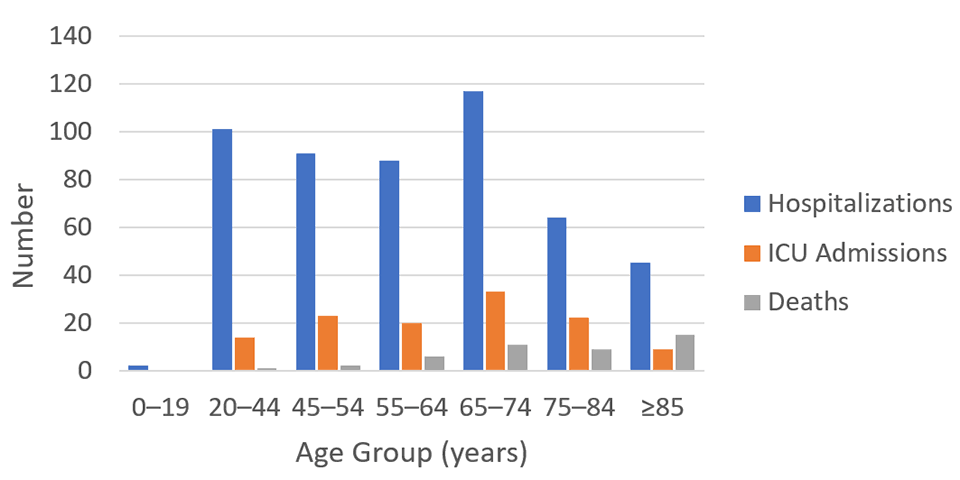In this update, the Centers for Disease Control and Prevention (CDC) discusses the increased coronavirus risk to older adults (ages 65 and older) and what senior citizens can do to protect themselves.
*Please Note: This information is being shared directly from the CDC website.
Older Adults, 65 Years and Older, Are at Higher Risk for Severe Illness
US Hospitalizations, ICU Admissions, and Deaths from COVID-19
February 12–March 16, 2020

Severe Outcomes Among Patients with Coronavirus Disease 2019 (COVID-19) — United States, February 12–March 16, 2020. MMWR Morb Mortal Wkly Rep. ePub: 18 March 2020. DOI: http://dx.doi.org/10.15585/mmwr.mm6912e2external icon
COVID-19 is a new disease, and we are learning more about it every day. Older adults are at higher risk for severe illness from COVID-19.
8 out of 10 deaths reported in the U.S. have been in adults 65 years old and older.
Among adults with confirmed COVID-19 reported in the U.S.:
- Estimated percent requiring hospitalization
- 31-70% of adults 85 years old and older
- 31-59% of adults 65-84 years old
- Estimated percent requiring admission to intensive care unit
- 6-29% of adults 85 years old and older
- 11-31% of adults 65-84 years old
- Estimated percent who died
- 10-27% of adults 85 years old and older
- 4-11% of adults 65-84 years old
What you can do
- If you have a serious underlying medical condition
- Wash your hands often.
- Avoid close contact (6 feet, which is about two arm lengths) with people who are sick.
- Put distance between yourself and other people if COVID-19 is spreading in your community.
- Clean and disinfect frequently touched services.
- Avoid all cruise travel and non-essential air travel.
- Call your healthcare professional if you have concerns about COVID-19 and your underlying condition or if you are sick.
- For more information on steps you can take to protect yourself, see CDC’s How to Protect Yourself
Stress and coping
If you, or someone you care about, are feeling overwhelmed with emotions like sadness, depression, or anxiety, or feel like you want to harm yourself or others call:
- 911
- Substance Abuse and Mental Health Services Administration’s (SAMHSA’s) Disaster Distress Helpline: 1-800-985-5990 or text TalkWithUs to 66746. (TTY 1-800-846-8517)
- Older people are at higher risk for severe illness from COVID-19 which may result in increased stress during a crisis.
- Fear and anxiety about the COVID-19 pandemic can be overwhelming and cause strong emotions.
- Learn more about stress and coping.
Things you can do to support yourself:
- Take breaks from watching, reading, or listening to news stories and social media. Hearing about the pandemic repeatedly can be upsetting.
- Take care of your body. Take deep breaths, stretch, or meditate. Try to eat healthy, well-balanced meals, exercise regularly, get plenty of sleep, and avoid alcohol and drugs.
- Make time to unwind. Try to do some other activities you enjoy.
- Connect with others. Talk with people you trust about your concerns and how you are feeling.
- Call your healthcare provider if stress gets in the way of your daily activities for several days in a row.
